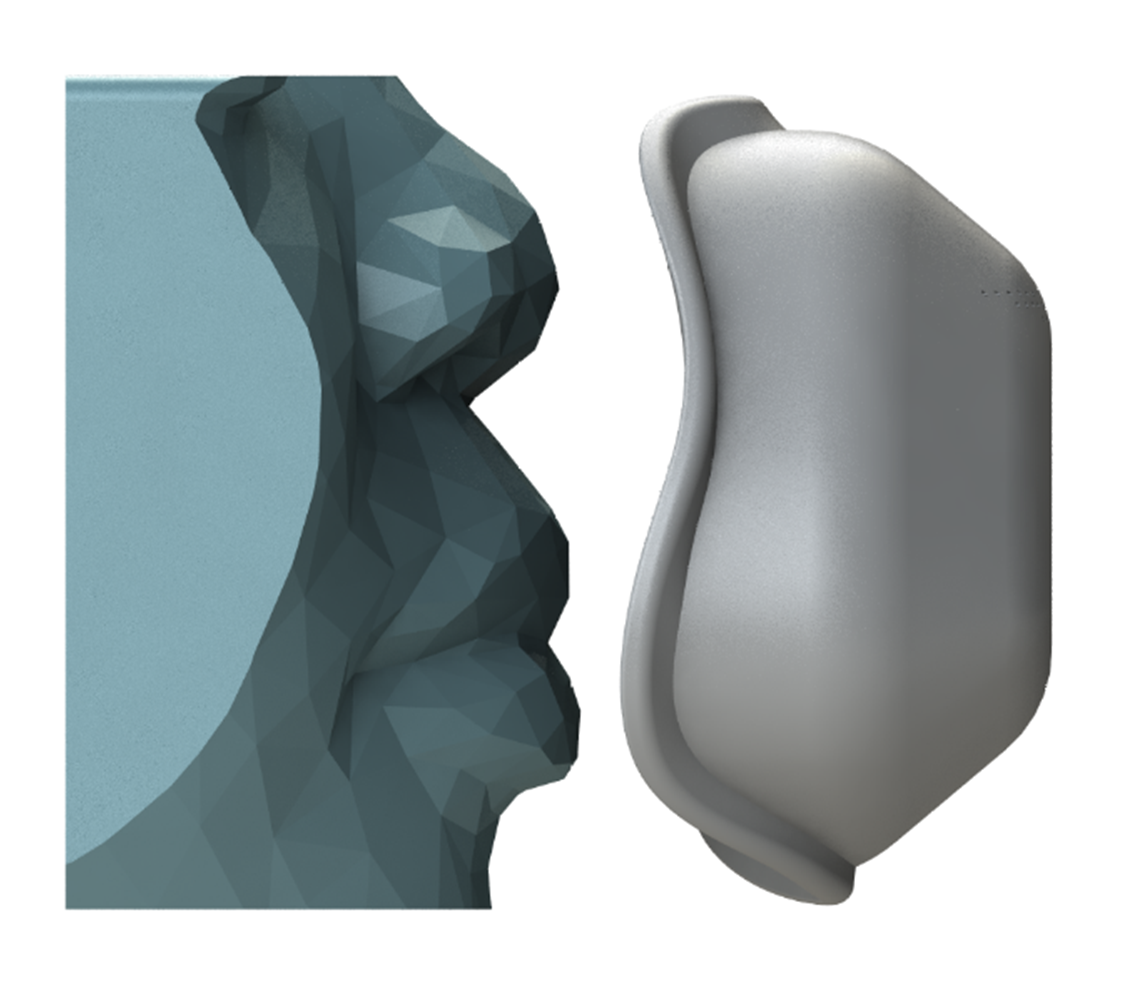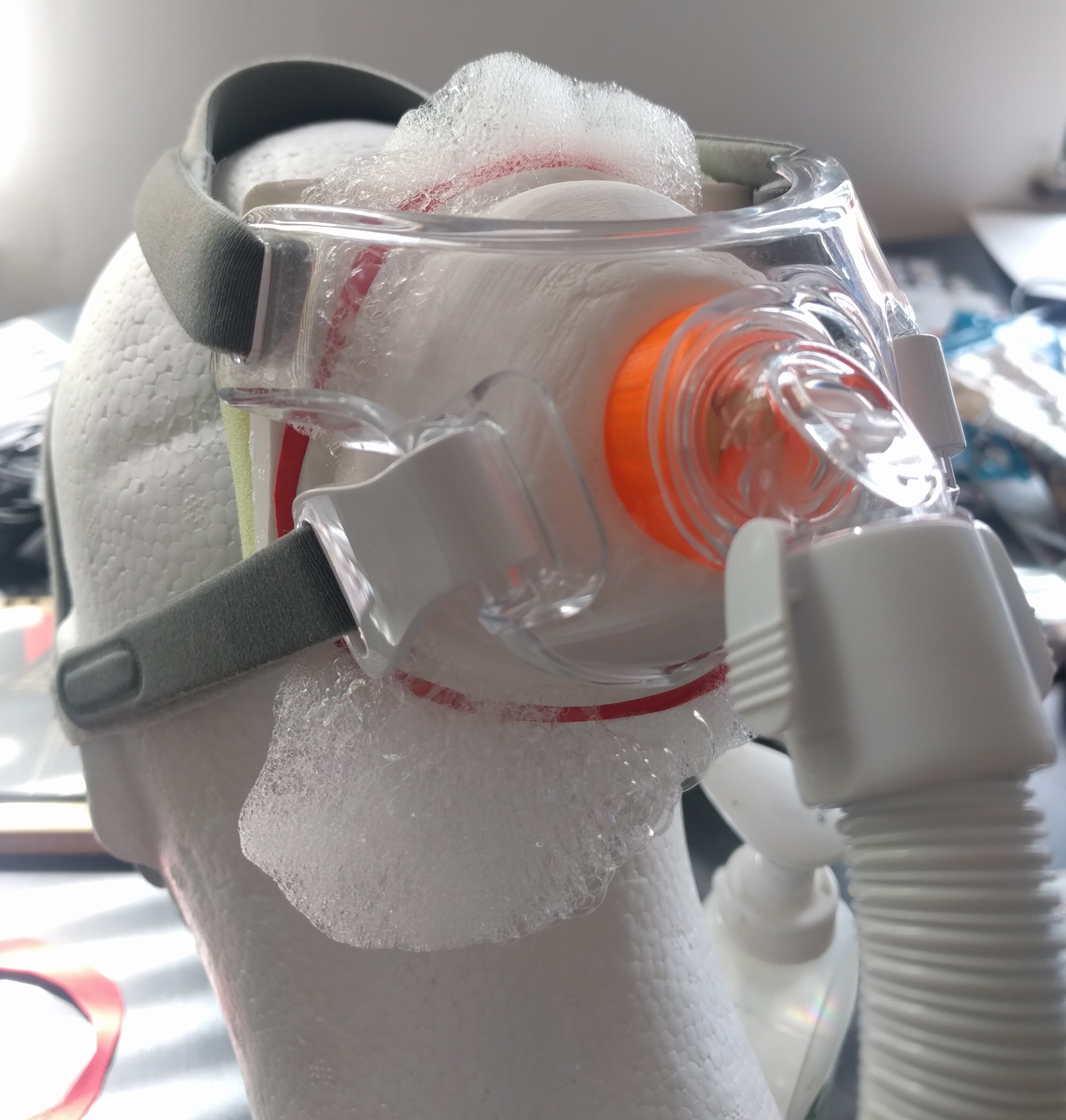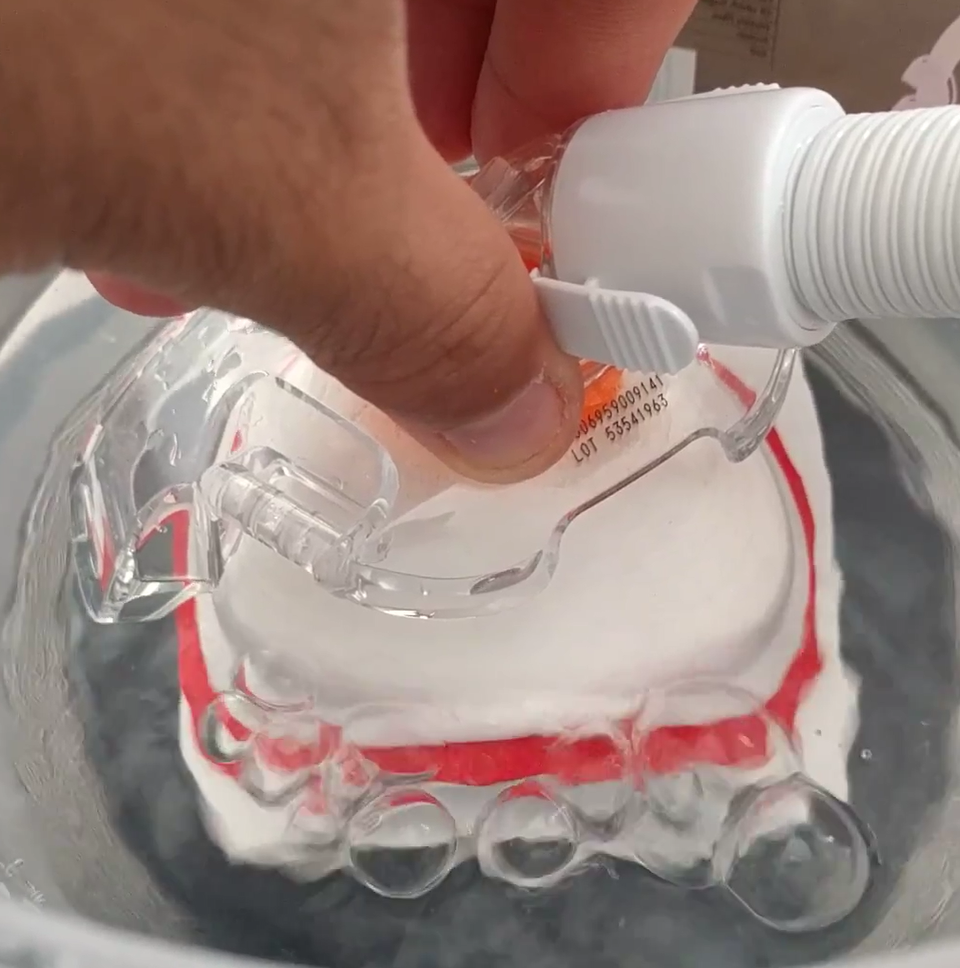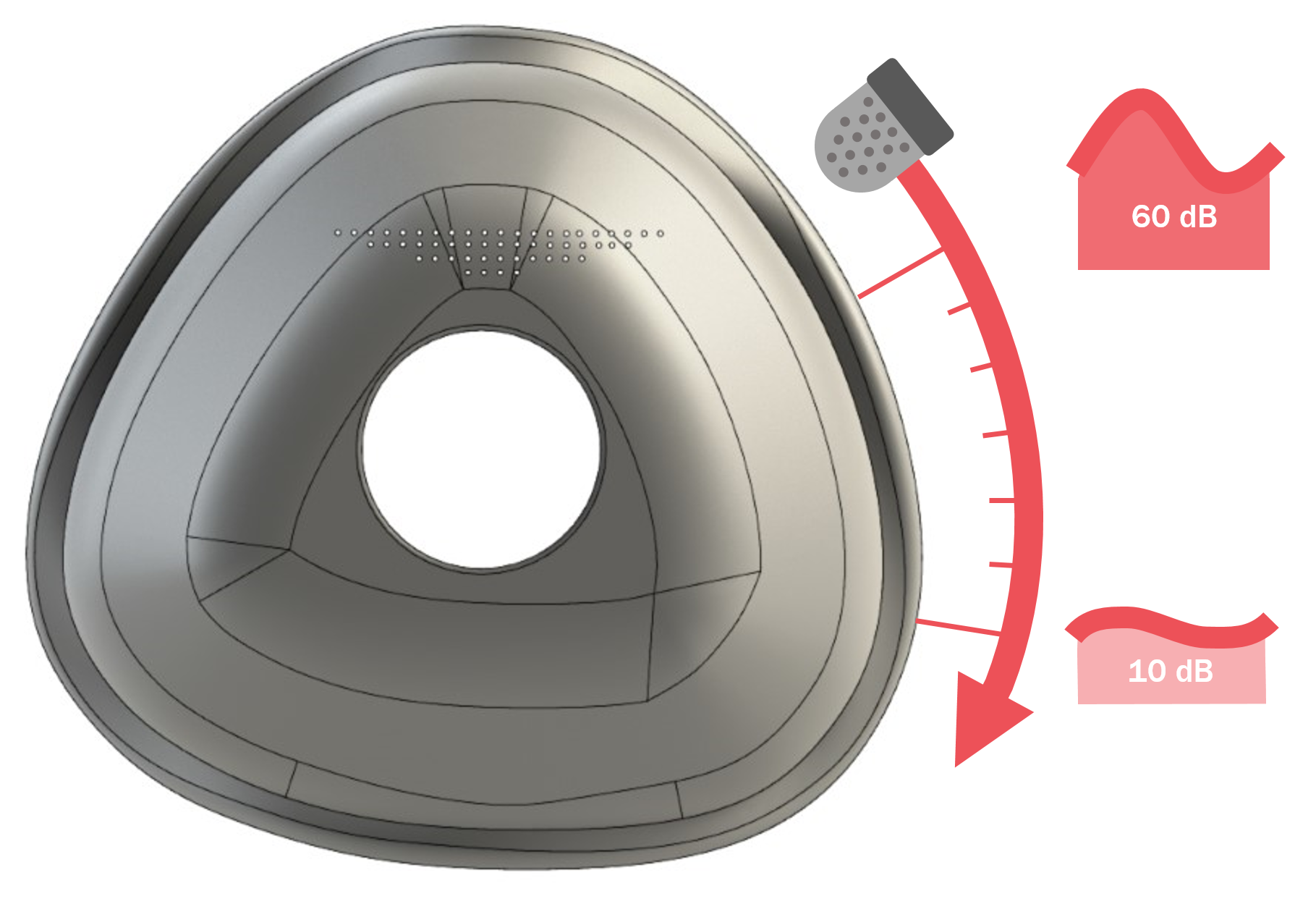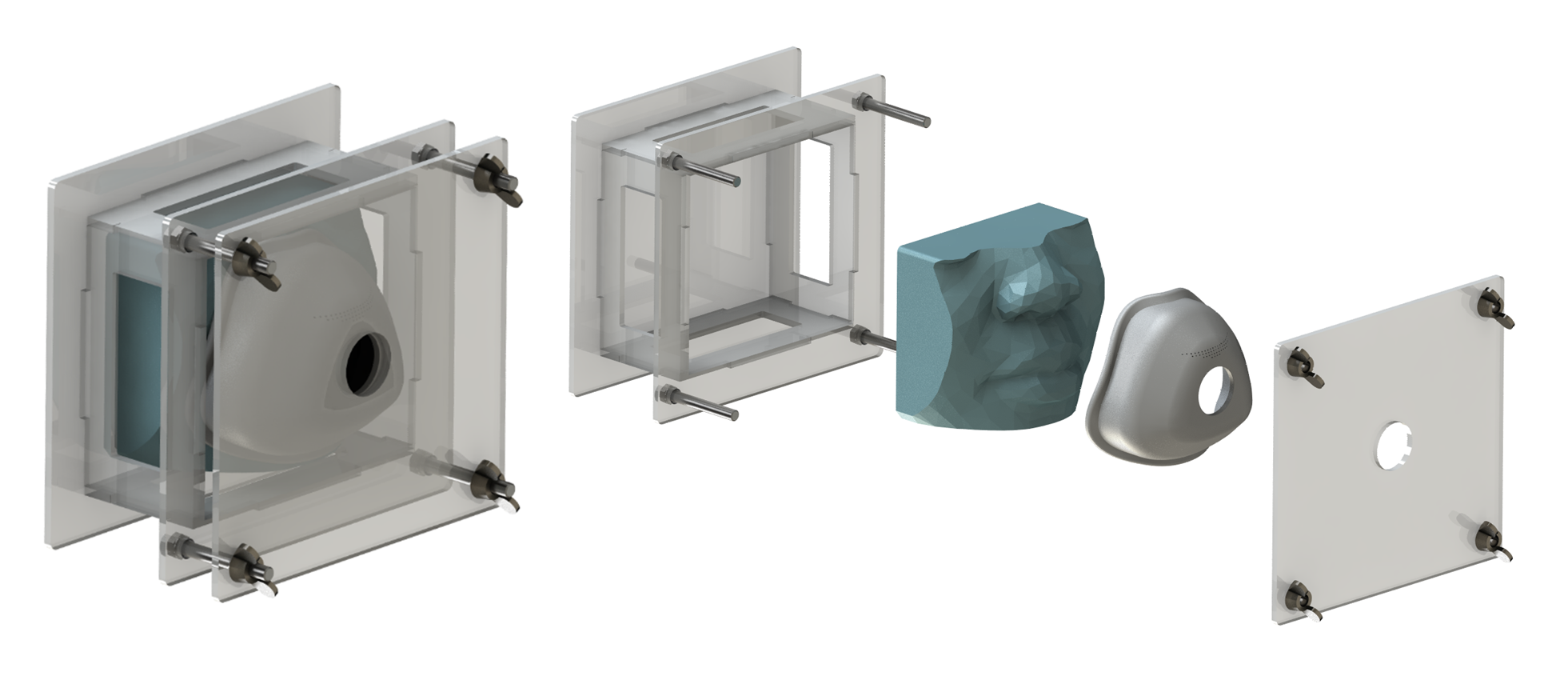Patient Specific Oxygen Masks
Medical Study
Imperial College London, 2016
Sleep apnea is a common condition that causes
windpipe closure during sleep. Treatment involves supplying air
via an
oxygen mask, using generalised masks
– causing
a
poor fit for most.
The resulting
leakage and
discomfort reduces
therapy
effectiveness.
Specific silicon masks can be made via
an injection mould and CNC
machinery. Such methods
aren’t
economical however, and so are only used
within academia. The aim of the study was to develop
a workflow for
the rapid
manufacture
of patient-specific oxygen masks, and to validate their performance.
To test this, 3 different head scans were selected from a database,
for validation across a range of facial structures. Masks
shaped to fit each were then made
using
Fusion 360.
By making a patient-specific
mask, the compliance
of a
silicon mask wasn’t required to reduce leakage. Instead, the validated masks
were redesigned to be entirely 3D printed – significantly improving the
price-to-performance ratio. A laser-cut foam lining was integrated for patient
comfort.
![]()
After experimenting with underwater and foam techniques, I developed an acoustic method to
measure leakage: a microphone was run across the mask-face interface, with the
response used as a measure of leakage. This showed leakage magnitude and
location – more informative than
conventional methods which just provide the total leakage flow rate.
The results confirmed the improved leakage
performance, and were showcased at the Imperial College Additive Manufacturing
conference. Additionally, it formed the basis of an ongoing PhD programme that’s developing the concept further.
Riyadh Rateme 2018 — London, UK
![]()
![]()
![]() By making a patient-specific
mask, the compliance
of a
silicon mask wasn’t required to reduce leakage. Instead, the validated masks
were redesigned to be entirely 3D printed – significantly improving the
price-to-performance ratio. A laser-cut foam lining was integrated for patient
comfort.
By making a patient-specific
mask, the compliance
of a
silicon mask wasn’t required to reduce leakage. Instead, the validated masks
were redesigned to be entirely 3D printed – significantly improving the
price-to-performance ratio. A laser-cut foam lining was integrated for patient
comfort.
![]()
![]()
![]()
![]()
![]() After experimenting with underwater and foam techniques, I developed an acoustic method to
measure leakage: a microphone was run across the mask-face interface, with the
response used as a measure of leakage. This showed leakage magnitude and
location – more informative than
conventional methods which just provide the total leakage flow rate.
After experimenting with underwater and foam techniques, I developed an acoustic method to
measure leakage: a microphone was run across the mask-face interface, with the
response used as a measure of leakage. This showed leakage magnitude and
location – more informative than
conventional methods which just provide the total leakage flow rate.

